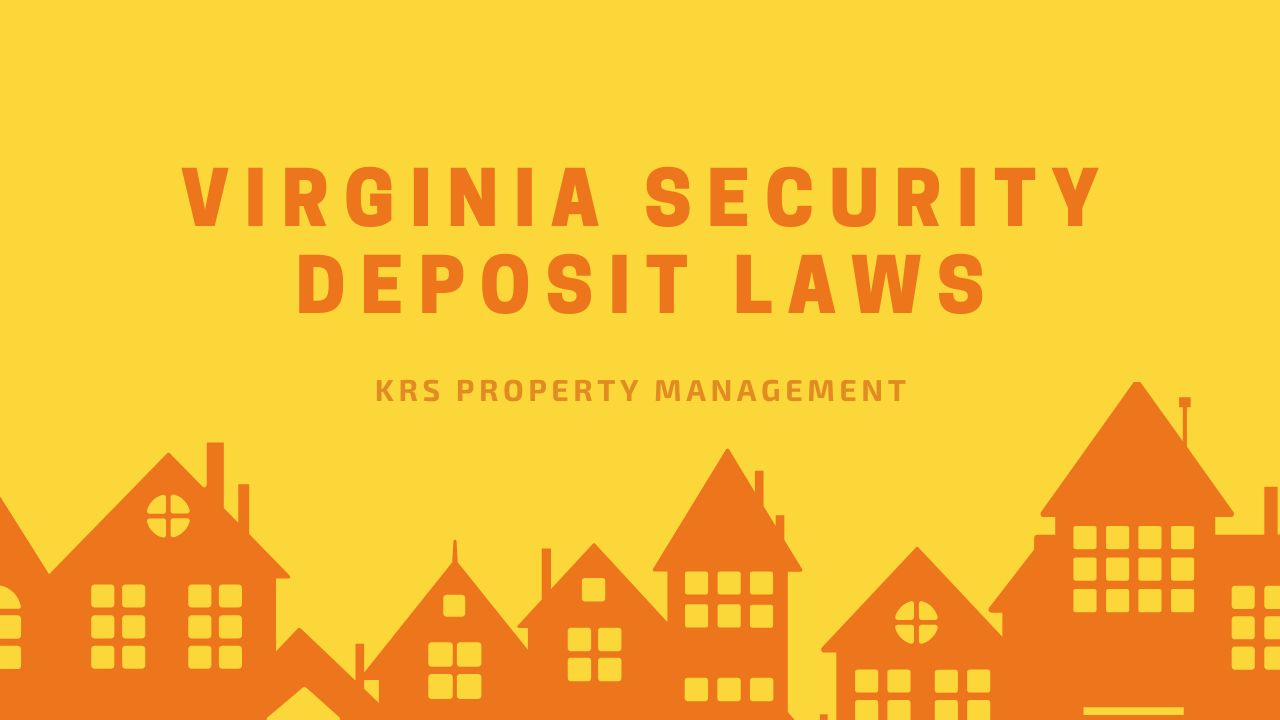
Key Takeaways
- Security Deposit Limits: Landlords in Virginia can charge up to two months' rent for a security deposit, with the option for tenants to purchase damage insurance instead, as long as the total doesn't exceed twice the monthly rent.
- Pet Deposits and Fees: Landlords can charge an additional pet deposit or pet rent, but the combined total of the security and pet deposits cannot exceed twice the rent. However, disabled tenants with emotional support animals are exempt from paying additional pet deposits.
- Move-In Inspections Required: Virginia law mandates that landlords provide tenants with a move-in inspection report, detailing the property's condition. Failure to do so can result in the forfeiture of any deposit claims.
- Deductions from Deposits: Landlords can use a tenant's security deposit to cover unpaid rent, fees, damage beyond normal wear and tear, or costs from an early lease termination.
State law requires that landlords charging security deposits abide by certain rules. In Virginia, these rules dictate things like:
The maximum security deposit amount you can charge a tenant.
What deductions you can make from the tenant’s deposit.
When to return the deposit, or whatever portion remains, after the tenant vacates the premises.
Failure to abide by these rules can cause you serious repercussions. Unlawful withholding, for instance, could make you forfeit your right to make any deductions. A court could also award the tenant up to 2X the wrongfully withheld amount, plus court and attorney fees.
To avoid potential issues, familiarize yourself with the state’s security deposit laws. This way, you’ll know what you can and cannot do regarding tenants’ security deposits in Virginia. Keep on reading this blog by KRS Lynchburg to learn more about Virginia security deposit laws.
A Guide to Virginia Security Deposit Laws
What Is the Maximum Security Deposit Amount a Landlord Can Charge in Virginia?
Virginia law caps the maximum security deposit amount to the equivalent of two months’ rent.
If you’re charging a monthly rent of, say, $1,500, then the maximum security deposit you can charge the tenant must not exceed $3,000.
Another option instead of (or in addition to) a security deposit is to allow the tenant to purchase damage insurance. The cost of the damage insurance and the security deposit must not exceed 2X the monthly rent.
You must also allow the tenant, upon request, to pay a security deposit rather than maintain the insurance at any point during the lease.

Can Landlords in Virginia Charge Tenants an Additional Pet Deposit?
Sure, you can do this! You can charge a tenant with pets an additional pet deposit to cover potential damage their furry companion can cause to the unit. Also, the law doesn’t prevent landlords from asking tenants for a pet rent.
If you consider charging tenants a pet deposit or a pet rent, you must keep two things in mind. One, that the total security deposit (move-in deposit and pet deposit) must not exceed 2X the rent.
Whatever label you decide to use to ask for money, the total amount must abide by the state’s limit. Whether that is a “pet deposit” or “damage deposit”.
Two, you must exempt disabled tenants from paying an additional pet deposit for their emotional support animals. Both the Fair Housing Act (FHA) and the Americans with Disabilities Act (ADA) classify disability as a protected class.
After all, assistance animals, including companion animals and service animals aren’t pets. They are working animals!
Are Move-in Inspection Reports Required in Virginia?
Yes! In Virginia, landlords are required to provide tenants with a written report describing the property’s move-in condition. If you fail to do so, you may forfeit the right to claim any portion of the tenant’s deposit after they move out.
Additionally, you must also provide the tenant with a written statement of their rights and responsibilities. Some of those rights include, a right to:
A written lease.
Be provided with certain disclosures before moving in, such as the contact info of the owner or property manager.
Be present during the move-out inspection.
Live in a fit and habitable rental property as per the Uniform Statewide Building Code.
A just eviction process.

As for the list of responsibilities listed under the Virginia Statement of Tenant Rights and Responsibilities, they include:
Paying rent on time.
Allowing the landlord access to the unit at reasonable times and for practical purposes.
Maintaining the unit to habitable standards.
Having and paying for renter’s insurance if required under the lease.
Paying late fees if the lease requires one.
Are Landlords in Virginia Required to Store Their Tenants’ Security Deposits in an Interest-Bearing Account?
Some states require landlords to store their tenants’ security deposits in a particular manner, including storing them in interest-bearing accounts or even posting them as surety bonds.
Virginia, however, isn’t like those states. As a landlord, you can hold tenants’ security deposits in whatever manner you feel like. Yours would be to just make sure those funds are available to the tenant within the required timeframe after they move out.
What Happens to a Tenant’s Security Deposit After a Property Is Sold in Virginia?
Once you sell an occupied rental property in Virginia, you must transfer the security deposit, or whatever portion remains, to the incoming landlord. The incoming landlord will then assume responsibility for handling it as per the state’s rules.
What Deductions Can a Landlord Make From a Tenant’s Security Deposit?
As a landlord, you can make certain deductions from a tenant’s security deposit after they move out. In Virginia, the following are the allowable deductions:
Unpaid Rent: If a tenant moves out without paying due rent, you can deduct it from their security deposit.
Unpaid Fees: If the tenant moves out without paying due fees, such as late rent fees, you can deduct them from their deposit.
Early Lease Termination: If a tenant terminates their lease early and without a legal justification, you could lose out on rent payments. Under Virginia law, you could use part or all of their deposit as compensation.
Damage Exceeding Normal Wear and Tear: These are damages that result from a tenant’s negligence, carelessness, abuse, or misuse.

The following are examples of what commonly constitutes excessive damage and normal wear and tear.
Excessive Property Damage
Marks, graffiti, or unauthorized paint colors.
Holes in the wall.
Chipped or gouged wood floors.
A missing hinge.
Unapproved wallpaper.
A torn curtain or blind.
Worn appliances due to long-term use.
Normal Wear and Tear
Faded paint.
A few nail holes in the wall.
A missing floor tile.
A squeaky door due to a sticky hinge.
A faded wallpaper.
A faded blind or curtain due to sunlight exposure.
Non-functioning appliances due to misuse.
When Must Landlords Return Their Tenants’ Security Deposits in Virginia?
You have up to 45 days after the tenant moves out to return part or all of their security deposit.
Bottom Line
This blog outlines the important basics of the Virginia security deposit laws that every landlord must have on their fingertips.
For expert help in staying legally compliant or overall management of your Lynchburg rental property, look no further than KRS Lynchburg. You can count on us for optimal return on investment and peace of mind. Get in touch to learn more!
Disclaimer: Please note that the information provided in this blog is intended for general guidance and should not be considered as a replacement for professional legal advice. It is important to be aware that laws pertaining to property management may change, rendering this information outdated by the time you read it.






